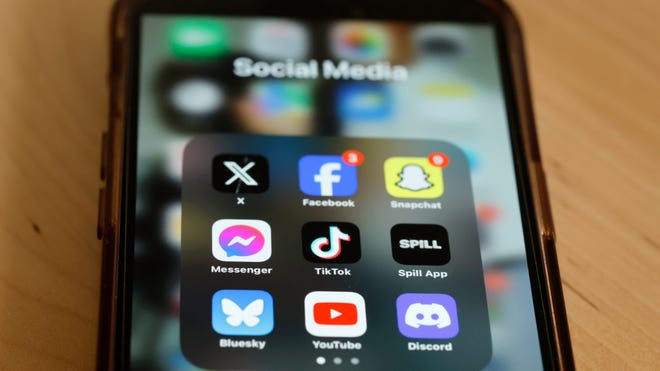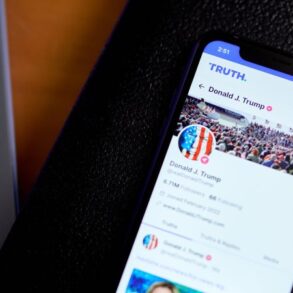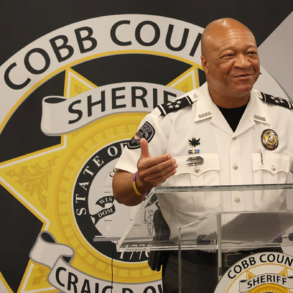A Florida law restricting minors’ access to social media will take effect on Jan. 1 – but it won’t be immediately enforced against major social media platforms.
Attorney General Ashley Moody’s office is holding off going after any of those running afoul of that law until the first stage of a court battle is complete.
“In order to obtain a full record and obtain discovery, Florida agreed to stay enforcement of its statute until the court rules on the motion for preliminary injunction,” Chase Sizemore, press secretary for the office, said in a statement.
If it’s not blocked by Tallahassee-based Chief U.S. District Judge Mark Walker, the statute (HB 3) would bar minors under 16 from social media platforms, unless they’re 14- or 15-year-olds who get a parent’s permission.
Trade associations representing social media platforms — NetChoice and the Computer & Communications Industry Association — filed a federal First Amendment lawsuit against the impending law last month.
While the legislation also required age verification to access pornographic websites in Florida, Sizemore said the stay was only for the challenged social media provisions — and focused on the social media platforms that are members of the suing associations.
Those members include the companies operating platforms like Facebook, Instagram, YouTube and Snapchat.
A hearing on whether Walker should block it will be held in late February, meaning enforcement will be delayed at least two months.
In a scheduling order published Tuesday, Walker wrote there could have been an earlier hearing but “neither side embraced a more streamlined, expedited presentation.”
Not the only legal battle between state and social media companies
NetChoice and the Computer & Communications Industry Association are still battling it out with Moody about a 2021 social media law. That case made it all the way to the U.S. Supreme Court, which punted it back to Florida’s federal court.
The law, passed by lawmakers and approved by Gov. Ron DeSantis in 2021, barred social media platforms from suspending or banning political candidates and was itself barred by federal courts that said such content moderation was protected by the First Amendment. That measure also allowed Floridians to sue those platforms if they’d been unfairly banned.
The groups filed an amended lawsuit against the state on Nov. 1.
“Florida is of course free to criticize websites for their decisions about what content to disseminate, remove, demote, or restrict,” they wrote. “But the First Amendment prohibits the state from overriding those editorial judgments and substituting its own.”
In a response last week, Moody’s office claimed the lawsuit was “riddled with holes.”
“They continue to press their blunderbuss, indiscriminate challenge to Florida’s law, attacking nearly a dozen statutory provisions, both facially and as applied,” the office wrote. “And rather than even one internet platform joining this action, the platforms … continue to hide behind their trade associations.”
A jury trial is scheduled in November 2025.
This reporting content is supported by a partnership with Freedom Forum and Journalism Funding Partners. USA Today Network-Florida First Amendment reporter Douglas Soule is based in Tallahassee, Fla. He can be reached at DSoule@gannett.com. On X: @DouglasSoule.








